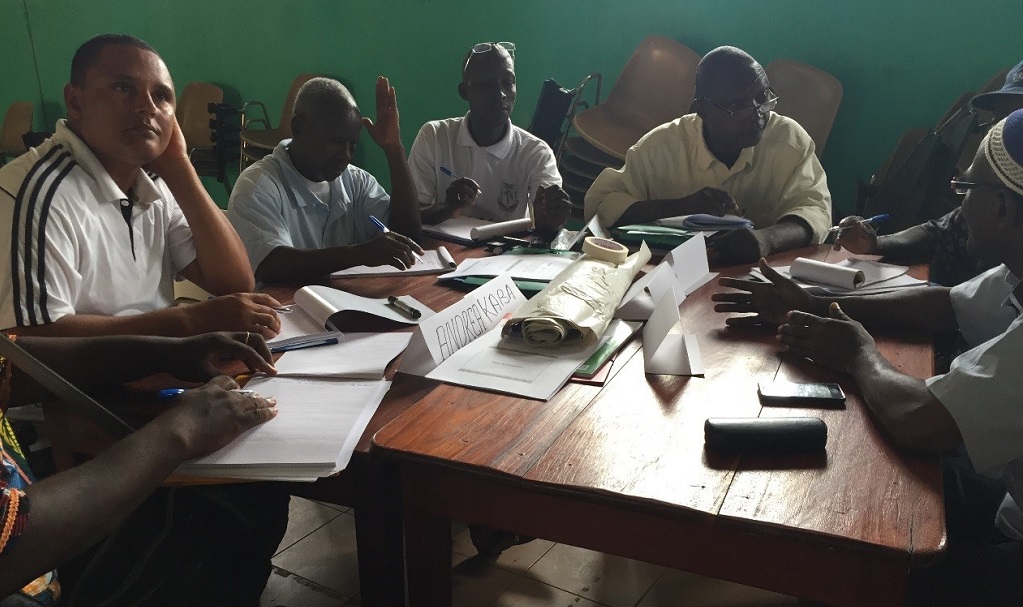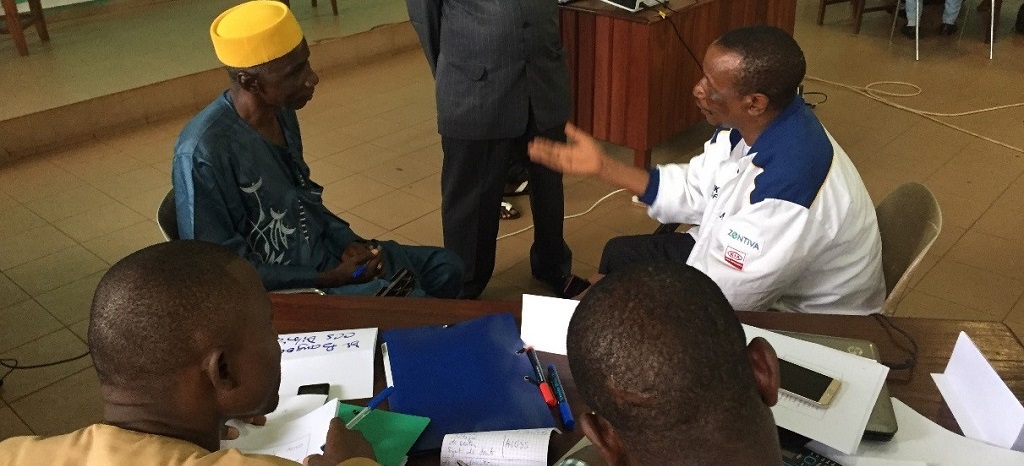Home to the largest mining facilities in Guinea and sizable fishing outposts, Boké is rich in natural resources and economic activity. However, the Boké district health management team (DHMT) has struggled to tap into and leverage existing local resources to support the health system.
Take, for example, attempts to encourage greater community use of available health services: when the DHMT didn’t know whom to approach with a request for needed resources, the effort fell flat. And when this happens often enough, pressing health challenges remain unaddressed.
In the wake of the Ebola crisis, Guinea’s Ministry of Health (MOH) is striving to restore health services and rebuild the country’s health system. This includes strengthening the capacity of district health managers to take greater ownership of local health system management themselves.
In support of the MoH and in response to local needs, MCSP developed and led four regional-level workshops for 20 DHMTs within four regions. At these events, regional- and district-level health managers were guided through the process of generating evidence for decision-making, assessing priority challenges, and developing locally-sourced action plans. This supportive and comprehensive approach to health systems management enabled district-level managers to better use their resources to effect short- and medium-term change while long-term national shifts were set in motion.

The Boké DHMT began by conducting a root-cause analysis to better understand why they were having trouble mobilizing the resources necessary to successfully carry out their planned activities. In doing so, the team determined that it had failed to include a diverse range of stakeholders in its annual planning or in regular management and coordination meetings. Community representatives, local private enterprises (including mining companies and fishing associations), and other sectors were not included these discussions, leaving a number of potential resources untapped.
These realizations led to several decisions: the DHMT prioritized convening regular coordination meetings, engaging local partners, and supporting community representation in the health sector to better mobilize resources. With regular support and quarterly visits from a joint MCSP-MOH technical team, the DHMT was able to not only integrate these next steps into its official district workplans, but also to begin achieving results. After one quarter of such support, the team had successfully established monthly coordination meetings with local stakeholders and updated a mapping of local partners and stakeholders to approach for financial support.
“This [resource mobilization and partner coordination] workshop is extremely important and responds directly to one of our main preoccupations and daily concerns as we implement activities on the ground,” said Dr. Diouhé Barry, Boké Regional Health Director. “Teams are leaving here with well-written requests that I am confident will be funded by our partners.”
Although the Boké DHMT successfully identified existing and potential local partners, their uncertainty about how to approach, engage and request financial support from these stakeholders proved common. Across 20 MCSP-supported districts, 14 identified priority challenges requiring better coordination of stakeholders, and 10 cited an explicit need for advocacy and resource mobilization support.
During quarterly visits, MCSP and the MOH saw that nearly all districts were struggling to formulate, submit and successfully follow up requests for support. In response, MCSP developed practical workshop materials on partner engagement and resource mobilization and – in collaboration with the MOH – conducted trainings for 22 DHMTs and four regional health teams.
These trainings gave participants the practical skills needed to successfully engage and coordinate with stakeholders, facilitate productive meetings, and conduct stakeholder analyses to better understand their partners’ concerns and interests. Critically, every team left the training with a fully developed request for funding support tailored to the interests of a targeted partner.
In the case of the Boké DHMT, members wrote a formal request for funding to long-time partner Stop Palu. The team also began work on its next priorities: engaging the community in the health sector, and strengthening the community’s health and hygiene committees.
Achieving sustained health system improvements requires changing how the system works. It means managing interactions between different parts of the system, and changing policies, organizational structures, and behaviors that drive system performance to improve equity, coverage, quality and efficiency.
Throughout Guinea, regional and DHMTs are now identifying, analyzing and prioritizing health system challenges that have hindered the achievement of strategic objectives. And by assessing and leveraging available and potential local resources, they’re generating their own solutions to achieve sustained quality and coverage.

